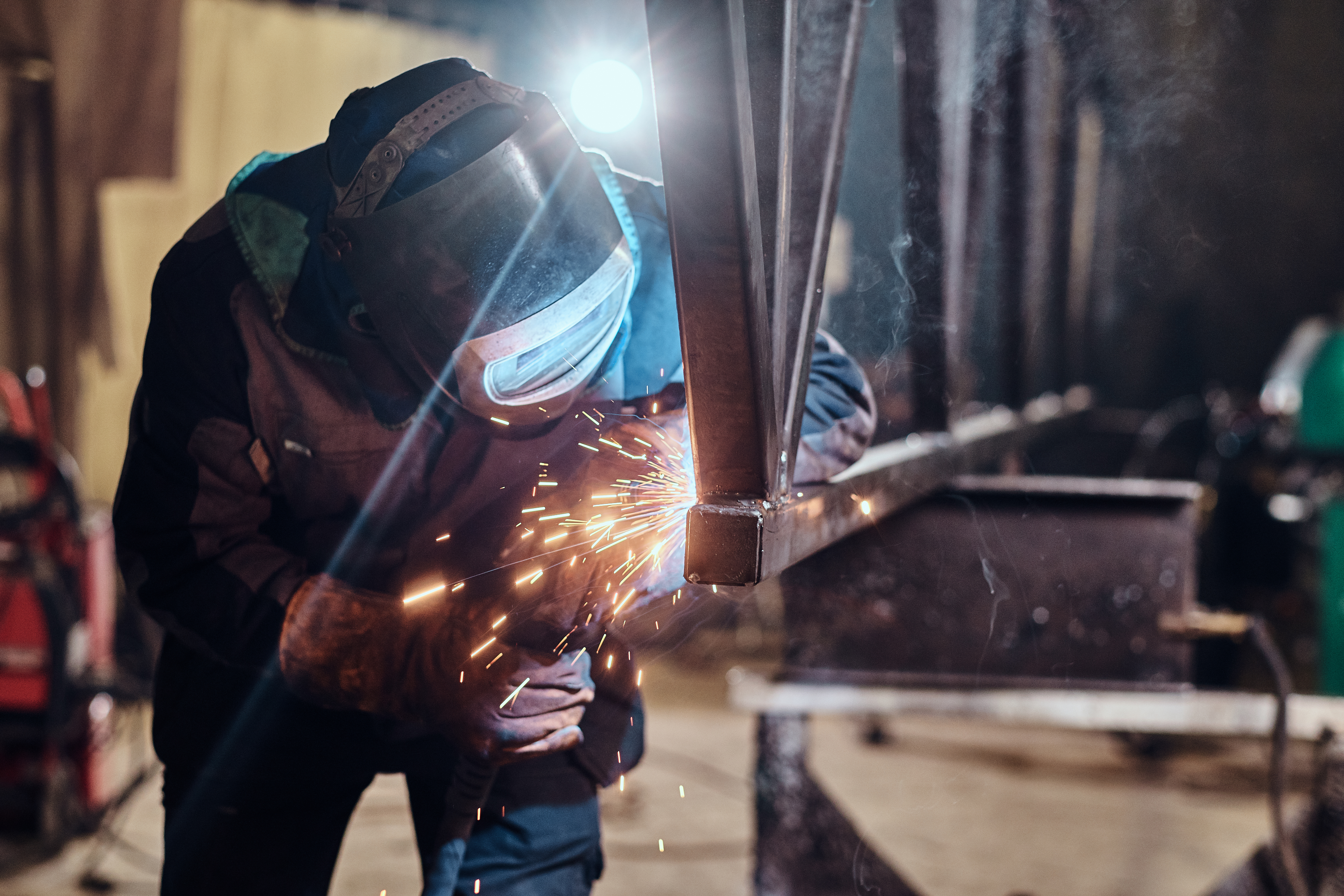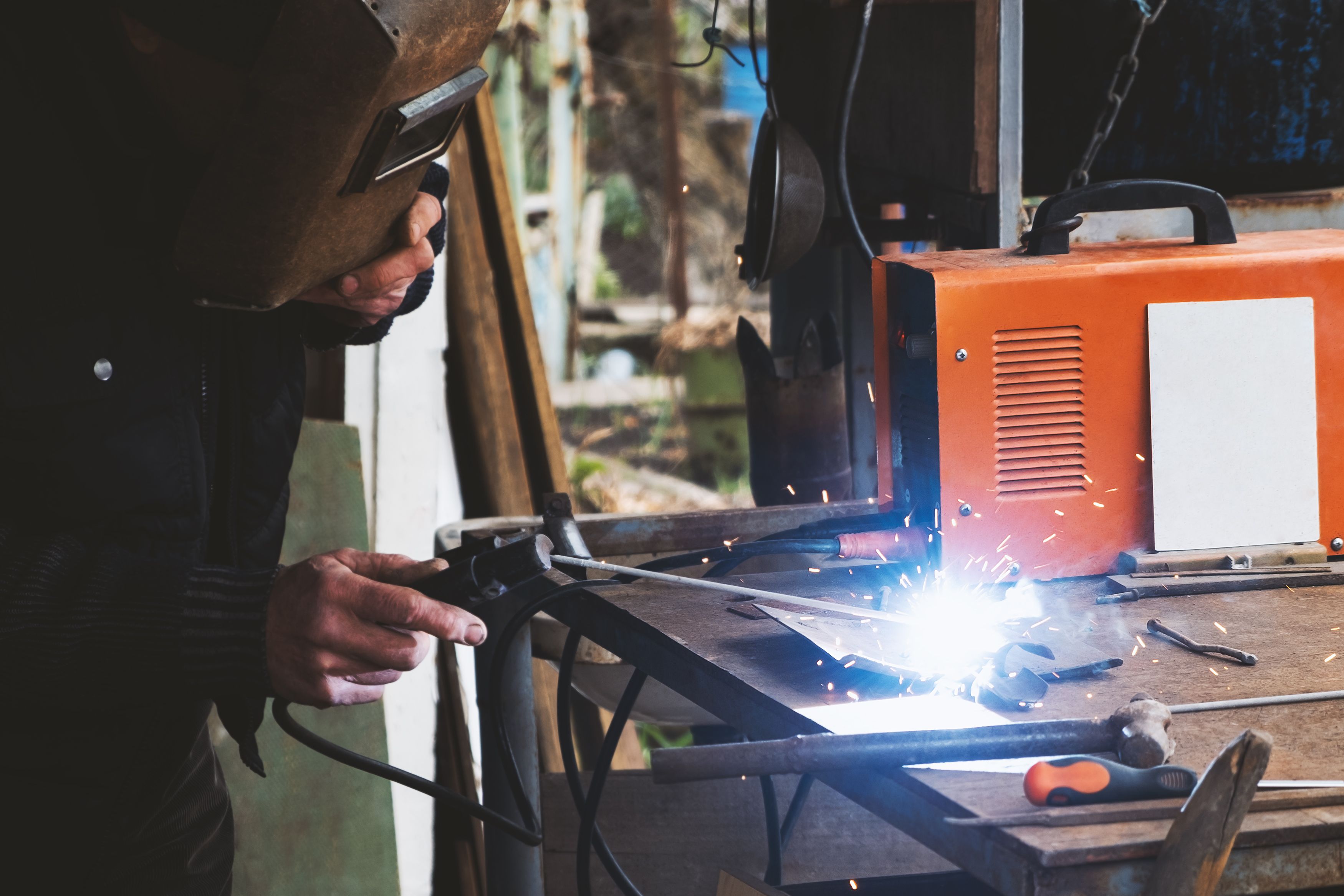Welder Salary: What is the Average Salary of a Welder?
Welder Salary: What is the Average Salary of a Welder?
Welders are an essential part of many industrial sectors. Their work involves welding both metallic and non-metallic materials using various techniques and procedures. The financial compensation for welders can vary significantly depending on several factors. In 2023, there were approximately 9,000 job openings for welders in the Czech Republic, reflecting high demand across various industries, including construction, automotive, and energy sectors (Jooble). This article will examine the factors influencing a welder's salary, the average welder's salary by region, ways to increase a welder's pay, and tips for finding a job in this field.

Factors Influencing a Welder's Salary
Work Experience
One of the most crucial factors affecting a welder's salary is their work experience. Welders with years of practice and specialized skills typically earn higher wages. Experience enables them to handle more complex projects and work with various materials, which is highly valued. For example, an experienced welder may be capable of welding different metals such as aluminum or stainless steel, increasing their attractiveness to employers.
Qualifications and Certifications
Education and acquired certifications also significantly impact a welder's salary. Welders with advanced certifications, such as the international welder certificate according to ISO 9606, can expect higher wages. Additionally, completing specialized courses and training can increase their market value. For example, certification in underwater welding or welding in special conditions can lead to significantly higher financial compensation.
Type of Employer
The type of employer can also influence financial compensation. Large industrial companies and international firms often offer higher salaries and a broader range of benefits compared to smaller firms or state institutions. Working for renowned companies also often brings better career growth opportunities. For instance, welders working in the oil or automotive industries can earn higher wages due to the specific requirements of these sectors.
Location
Where a welder works is another crucial factor. Larger cities and industrial areas offer higher salaries than smaller towns and rural areas. This is due to the higher demand for skilled workers and higher living costs in these locations. For example, welders in Prague can expect higher wages than welders in smaller towns due to higher living costs and more industrial enterprises.
Specialization
Welders who specialize in certain techniques or types of materials can also achieve higher wages. Specializing in modern technologies such as aluminum or stainless steel welding can be very profitable. Furthermore, welders specializing in methods like TIG or MIG/MAG welding are often sought after and can secure higher financial compensation.
Technology and Equipment
Using modern welding technology and equipment can also impact a welder's salary. Welders who can work with the latest technologies and equipment may be more valuable to their employers. For example, welders who can operate robotic welding systems or automated welding stations can expect higher wages due to increased productivity and quality of work.
Welding Methods
Different welding methods that a welder masters can also affect their salary. The most common methods include:
- MMA Welding (Manual Metal Arc): Also known as stick welding, this method is versatile and used for various types of metals. Its advantages include simplicity and low equipment costs. Welders proficient in MMA are often in demand for various construction and repair work.
- MIG/MAG Welding (Metal Inert Gas / Metal Active Gas): This method uses a consumable wire electrode and shielding gas. MIG welding uses inert gas (e.g., argon), while MAG welding uses active gas (e.g., CO2). This method is highly efficient for welding thin materials and is commonly used in the automotive industry.
TIG Welding (Tungsten Inert Gas): This method uses a non-consumable tungsten electrode and inert gas (e.g., argon). TIG welding is known for its high quality and precision, making it ideal for welding thin materials and demanding projects.
By integrating these factors, a welder can not only increase their salary but also improve their position in the job market and secure more attractive job opportunities.

Average Welder Salary by Region
The average welder salary in the Czech Republic varies by region. Welders in industrially developed areas such as Prague, Brno, and Ostrava typically earn more than their counterparts in smaller towns and rural areas (Talent.com).
- Prague
In Prague, with the highest concentration of industry and construction, welders can expect an average salary of around 40,000 to 50,000 CZK per month. The hourly wage often exceeds 250 CZK.
- Brno
Brno, the second-largest city in the Czech Republic, offers welders an average salary of around 35,000 to 45,000 CZK per month. The hourly wage is approximately 230 CZK.
- Ostrava
Ostrava, a significant industrial center, offers welders an average salary of around 30,000 to 40,000 CZK per month. The hourly wage here is about 220 CZK.
- Smaller Towns and Rural Areas
In smaller towns and rural areas, the average welder salary ranges from 25,000 to 35,000 CZK per month. The hourly wage in these regions is often below 200 CZK.
Ways to Increase a Welder's Salary
Further Education and Certifications
Completing additional courses and obtaining advanced certifications can significantly increase the chances of a higher salary. Specialized courses and training in modern welding techniques and materials can open doors to better-paid job opportunities.
Gaining Experience in Various Fields
Working on diverse projects and gaining experience in different sectors can lead to better job opportunities. Welders with experience in various techniques and materials are more in demand in the job market.
Networking and References
Building a strong professional network and obtaining positive references from previous employers and clients can increase the chances of securing better-paid positions. Networking can also lead to discovering new job opportunities.
Entrepreneurship
Starting a welding business or working as an independent consultant can bring higher incomes. This step requires greater responsibility and risk but can lead to significantly higher financial rewards.
Job Hunting Tips for Welders: Main Resources and Advice
- Professional Organizations and Associations
Joining professional organizations and associations can also help in job hunting. These organizations often host job fairs, training, and other events useful for networking and finding new job opportunities.
- Professional Social Networks
Networks such as LinkedIn and Facebook can be very useful for welders looking for new job opportunities. These platforms allow connecting with potential employers, showcasing skills and experiences, and searching for job offers.
- Specialized Platforms
Specialized platforms like Wecan.cz focus on craftsmen and technicians, including welders. These platforms offer various payment options and contracts from individuals and companies.
- Personal Contacts and References
Personal contacts and references can play a key role in finding new job opportunities. Welders should actively build their professional network and obtain positive references, significantly increasing their chances of landing a better job.
The work of a welder is demanding but highly valued and well-paid. The key to achieving a high salary is a combination of experience, qualifications, and active job searching. Welders who invest in their education and professional development can expect a successful and lucrative career.